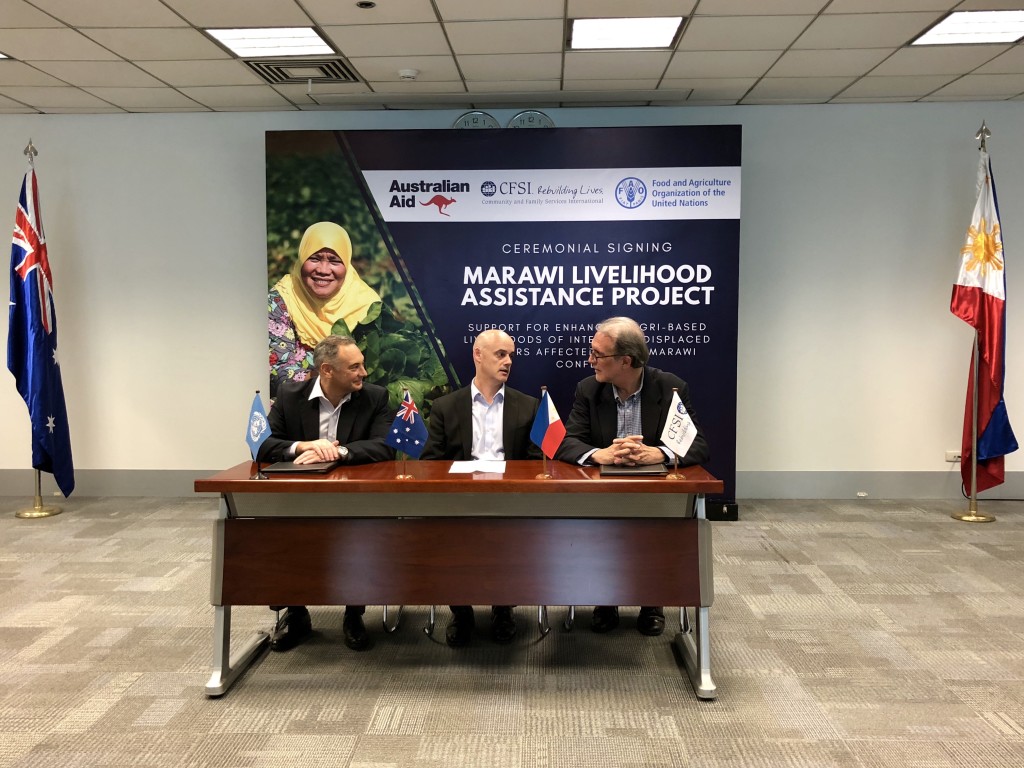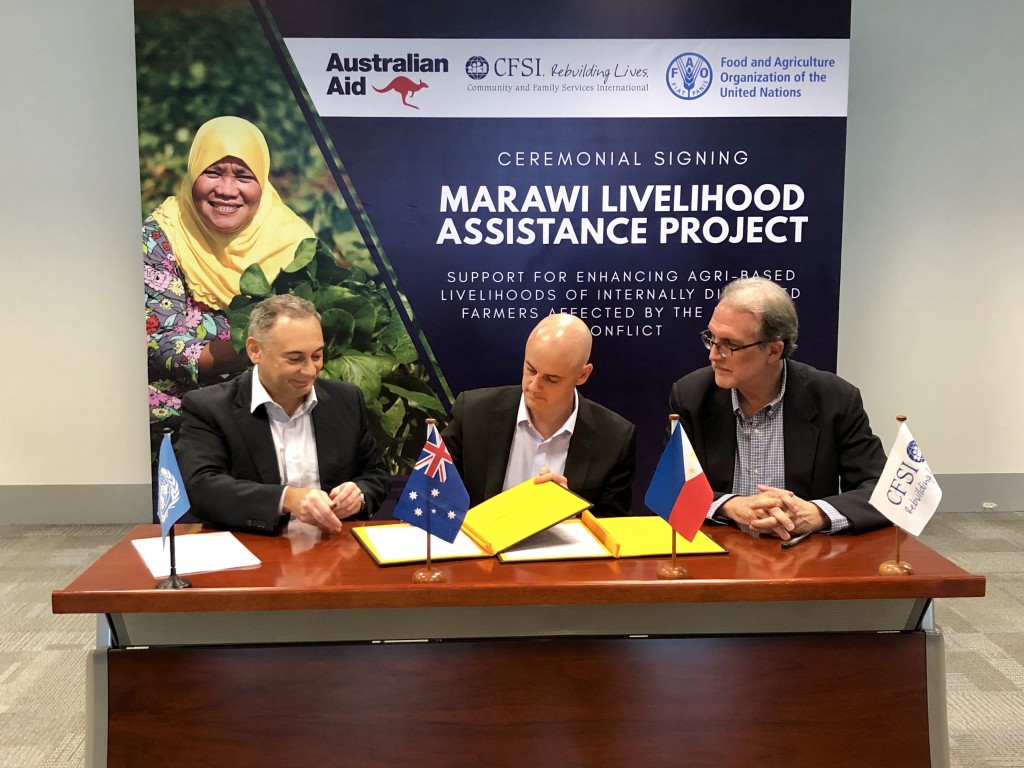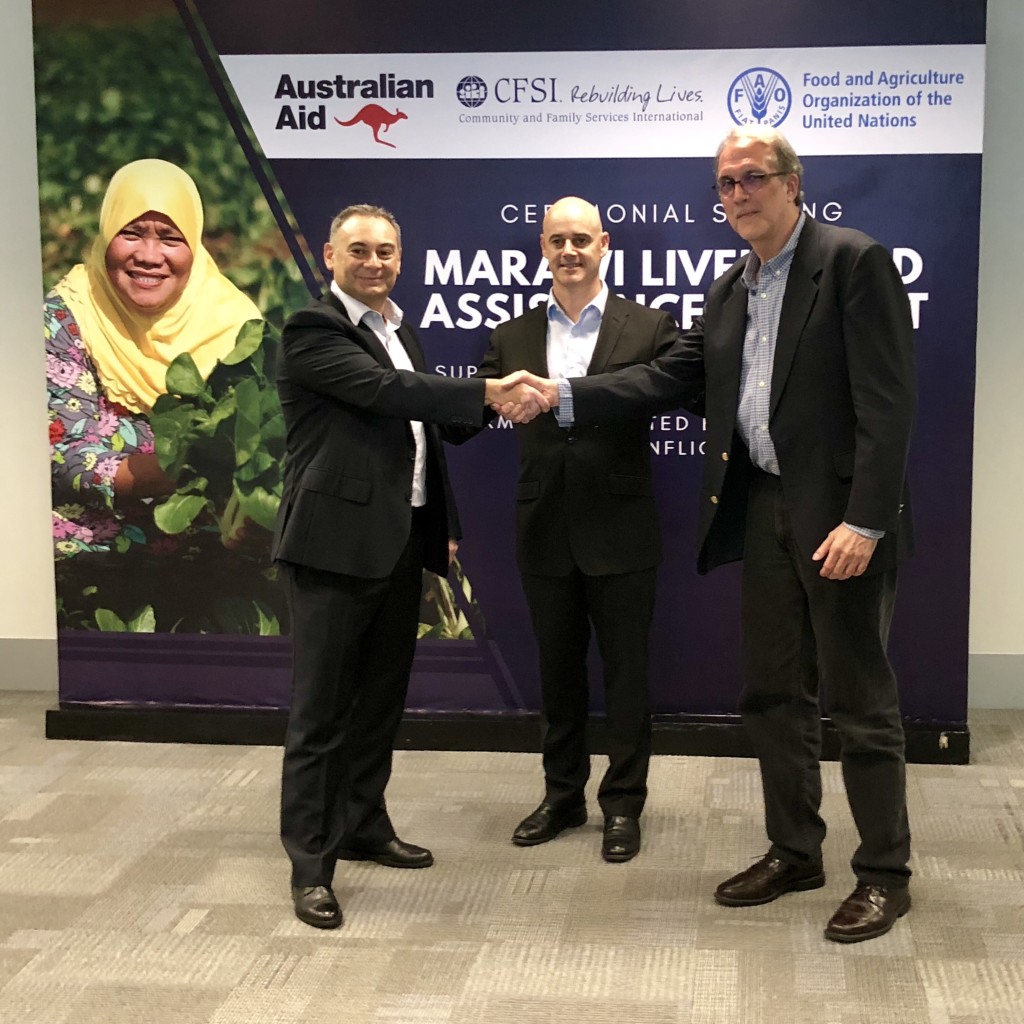Makati City, 28 May 2018 – Families who have been displaced by the Marawi siege continue to face challenges in restoring their livelihoods months after the crisis has ended.
The Marawi crisis in May to October 2017 brought massive destruction to agricultural farms resulting to limited food supply which exacerbated food insecurity and limited access to markets of displaced households in the affected areas.
Community and Family Services International (CFSI) and Food and Agriculture Organization (FAO) of the United Nations have partnered to implement an agriculture-based livelihood assistance initiative in response to the humanitarian crisis brought about by the Marawi conflict.
The support for enhancing agri-based livelihoods of internally displaced farmers is part of a broader AUD2.5 million (around PHP100 million) package of assistance funded by the Australian Government and being implemented by CFSI. CFSI’s assistance aims to support protection, psychosocial, and urban and agri-based livelihood benefiting 4,000 households (20,000 persons) displaced by the crisis in Marawi City, and the Municipalities of Ditsaan Ramain, Marantao, and Piagapo in Lanao del Sur. CFSI directly implements the first two components in all areas, and the urban livelihood in Marawi City.
FAO is implementing the agri-based livelihood component benefiting 2,500 households, including agrarian reform communities, in the three municipalities from May 2018 to September 2019.
“CFSI appreciates this partnership, which aims to enable the most disadvantaged and vulnerable of the displaced to rebuild their lives, foster stronger relationships between displaced persons and host communities, as well as promote prospects for peace,” said CFSI Executive Director Steven Muncy.
FAO Representative in the Philippines, José Luis Fernandez, said, “FAO welcomes the opportunity to collaborate with the Australian Government and CFSI to support rebuilding Marawi. The complex, varied and dynamic situation in conflict-affected areas in Lanao del Sur requires area-specific responses to address food security and economic recovery needs of the people displaced by the conflict, especially the most vulnerable and those with special needs.”
Mr Muncy and Mr Fernandez, on behalf of CFSI and FAO respectively, signed the Sub-Grant Agreement at the Australian Embassy in Manila in the presence of the Australian Embassy’s Deputy Head of Mission, Mat Kimberley.
CFSI and FAO will work closely with a network of partners such as the Department of Agriculture and Fisheries of the Autonomous Region of Muslim Mindanao, Department of Agriculture, Department of Agrarian Reform, and Mindanao Development Authority throughout the project implementation.

Mr Steven Muncy of CFSI (far right), Mr José Luis Fernandez of FAO (far left) and the Australian Embassy’s Deputy Head of Mission, Mat Kimberley (centre) at the sidelines of the signing ceremony for the livelihood assistance project for Marawi. CFSI and FAO’s support for enhancing agri-based livelihoods of internally displaced farmers is part of a broader AUD2.5 million package of assistance funded by the Australian Government and being implemented by CFSI.



